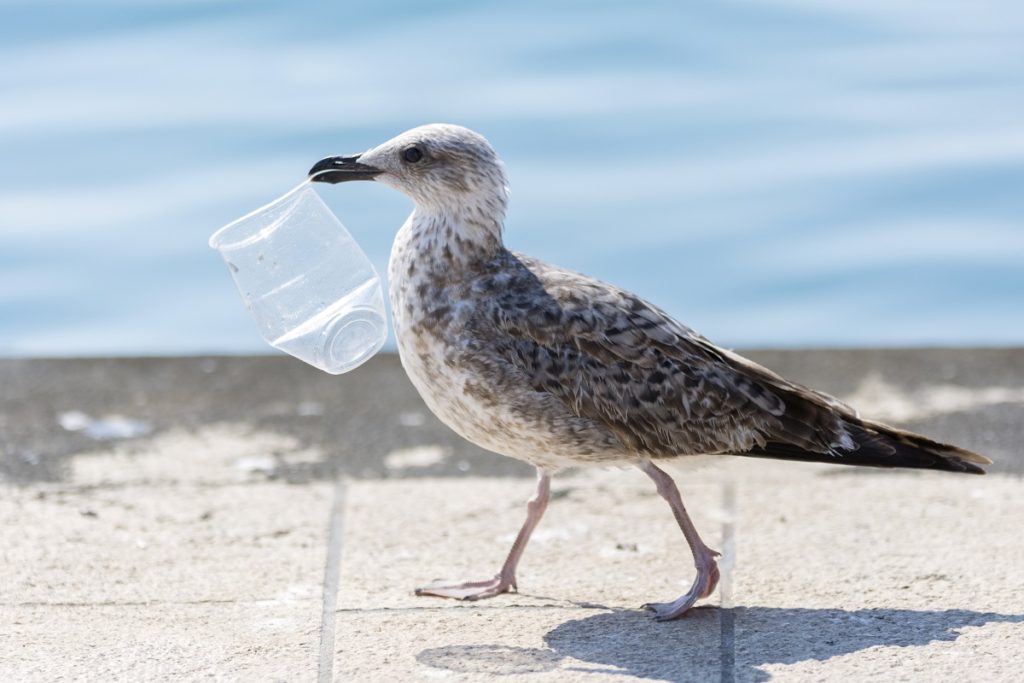On the 30th June 2020, 1,900 young people joined together at the Virtual Youth Summit in India to celebrate their completion of the Tide Turners Plastic Challenge in India. The challenge is a global initiative to educate young people about plastic pollution. It is developed by the United Nations Environment Programme’s (UNEP) Clean Seas Campaign, supported by the UK Government’s Department of Environment, Food, and Agriculture.
Addressing the virtual crowd of young change-makers from India, 86-year-old primatologist Jane Goodall recalled that from a very young age she was fascinated by nature. She shared that she once took worms to bed, wondering how they moved around without legs. Since then, her curiosity has earnt her global renown for her work on the study of chimpanzees.
Curiosity is what has motivated the young people to take part in the Tide Turners Plastic Challenge. They share Jane Goodall’s enthusiasm for learning about nature and how they can make the world a better place.
Tide Turners educates young people about single-use plastics, encouraging them to alter their attitude towards plastic consumption and spark behavioral change in their communities. Participants undertake three levels of the challenge from knowledge and self-reflection, to initiating dialogues with authorities at schools and businesses to encourage them to reduce their consumption of single-use plastic products from the grassroots level. Due to Covid-19, the fieldwork could not be carried out as planned. Still, the young tide turners found ways to complete their challenge virtually.
The Youth Summit was marked by the presence of special guests – from celebrity changemakers to badge-holders from Kenya, Uganda, and Ghana – who shared their passion for the environment. Actress and model Dia Mirza spoke about using her platforms to share messages about the environment with different audiences. Grammy Award winner Ricky Kej raises awareness about issues such as Land Degradation and Nitrogen pollution through music. Cartoonist Rohan Chakravarty uses his artistic talents to create artwork about marine litter and other environmental problems.
UNEP’s Chief of Youth and Advocacy, Sam Barratt said, “The summit was a reminder that it doesn’t matter how old you are, where you’re from, or what your occupation is, we all have a critical role to play in shaping the world. This generation of Indian Tide Turners has taken their first steps into environmental leadership. Already they have had a huge impact on changing the plastic habits of their community and calling on companies and their schools to act on pollution.”
In India, Tide Turners is led by UNEP, with support from implementing partners: World Wide Fund for Nature India (WWF India), Centre for Environment Education (CEE), and the Million Sparks Foundation.
According to India’s Central Pollution Control Board (CPCB), around 26,000 tonnes of plastic is generated per day in India, 10,000 of which is uncollected. But for the thousands of young people who have completed the challenge, there is hope for a better future.
Shri Kartikeya V Sarabhai, Director of the Centre of Environment Education India said, “Youth have the power to bring about positive change. The Tide Turner Challenge was designed as an online platform for youth to participate, learn, and act on plastic pollution. It was wonderful to see how over a 120,000 youth in India joined those in other countries to get involved and contribute to the solution”
Since June 2019, 170,000 young people have participated in the Tide Turners challenge, earning badges made entirely from recycled plastic. The initiative operates in twenty-three countries in Africa and Asia. There are plans to expand to another ten countries in Africa, Asia, Pacific, and the Caribbean, transforming the next phase of “Tide Turners” into “Wave Makers”. From awareness to advocacy, UNEP will roll out further training options for those that have completed Level 3, the “Champion” level of the badge.
Article: Unenvironment org
